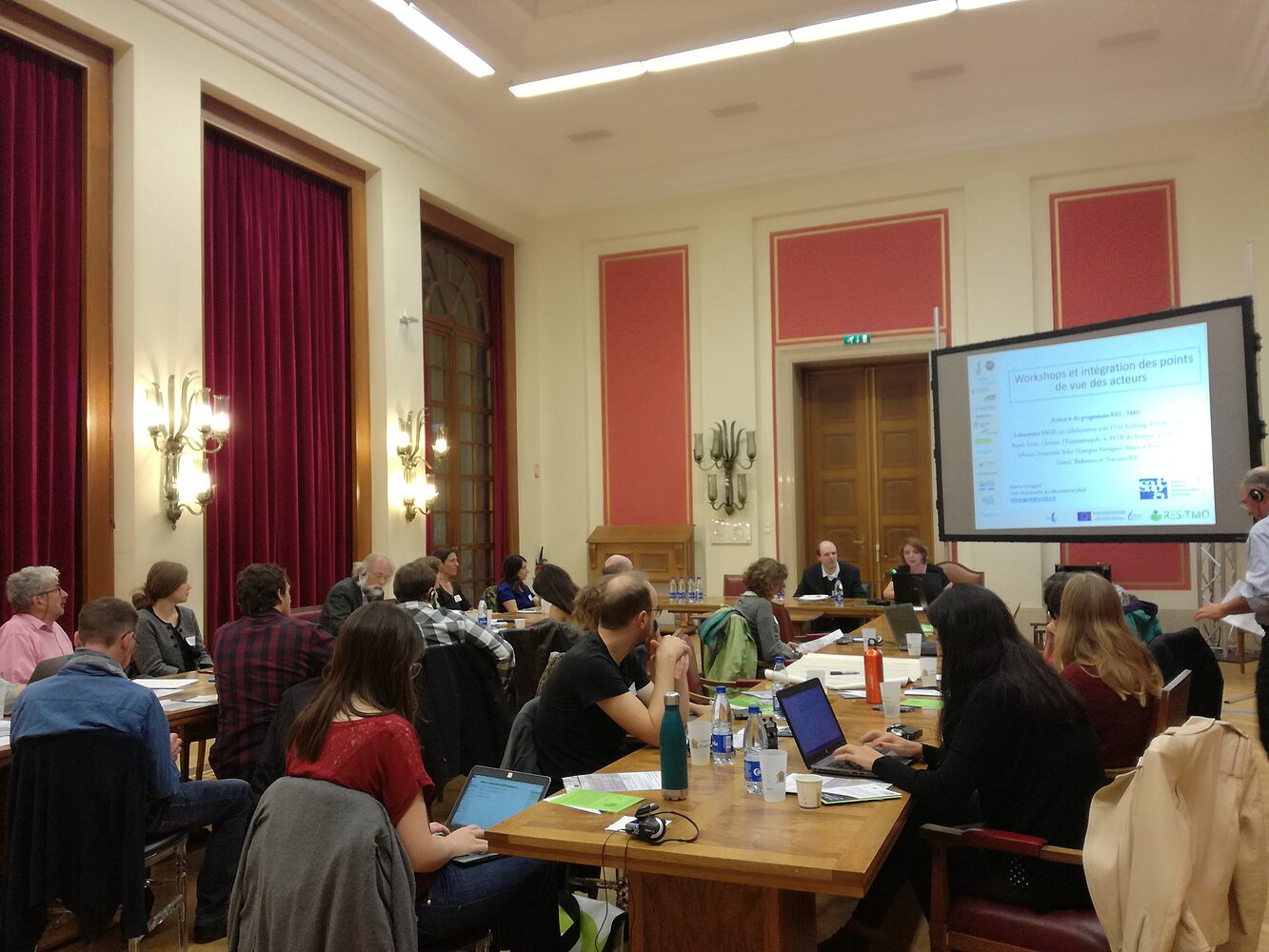On 23 September 2019, the first cross-border stakeholder workshop was held in Strasbourg as part of WP4 of the project. It was focused on citizen-driven cooperative initiatives on energy, and was organised by the SAGE laboratory of the University of Strasbourg and the coordination office in collaboration with Alter Alsace Energies and the GECLER network (Grand Est Energie Citoyenne). The 28 French, German and Swiss participants in this interactive workshop were mainly representatives of citizen energy initiatives and they had productive exchanges on citizen energy, exploring the regulatory, financial, institutional and operational challenges of citizen-based cooperative initiatives on clean energy in the three national contexts, while also reflecting on opportunities offered by cross-border cooperation.
Four presentations of local projects already completed or under construction stimulated these debates. Ms. Paola Criqui, President of the Centrale Villageoise du Pays de Saverne, first provided insights into the launch of the Centrale Villageoise and the legal context favourable or not to this type of citizen initiative. Ms. Helga Schmidt and Mr. Johannes Lischke from the Bürgerenergiegenossenschaft Kehl then showed, particularly through their initiative on public lighting in the city, how a citizen energy cooperative can work together with the local community. These possibilities for cooperation between different actors were also addressed by Mr. Josef Pesch, co-director of Fesa Energie Geno, based on the Zusamme Solar Colmar project, the result of the German cooperative's collaboration with the French cooperative Energies Partagées en Alsace. Finally, Mr. Jean Marc Comment presented the on-going creation of a citizen energy network in French-speaking Switzerland, called Coopergy. The purpose of this network is to share tools and expertise among members of energy cooperatives while protecting common interests.
With all these elements in mind, the discussions that followed focused on the issues addressed in each presentation. The working groups documented the discussed challenges and levers for action, thanks in particular to the work of two interpreters who facilitated the Franco-German exchanges.
